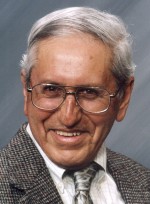Connecticut, now that fall is here, is a time of waning. The sunlight is bright but weak; the sky is a deep blue but won’t last; the garden is turning yellow. A neighbor working on her yard comments on the beauty of the day, then adds: “But winter is coming.”
We are put in mind of fleeting time, the passing of our lives. Those of us who have lived long realize how much we have already lost: can’t run or walk fast, see or hear as well as we once did or do things once done effortlessly. It is the autumn of our lives.
So we pray more than we used to. My brother Ray, a teacher for four decades, says his rosary and goes to Mass every day. “I must be getting ready for my final exam,” he explains. We are preparing, packing up to travel to a destination perceived as our true home.
But given the choice, what would be the port of embarkation for the journey to the afterlife? In that respect, Roger Cohen, one of my favorite columnists who writes for The New York Times, recently examined an essay in The London Review of Books by James Wood. Wood asked a fellow Englishman Christopher Hitchens, like himself a longtime U.S. resident, where he would go if he had only a few weeks to live. Would he stay in America? Long before Hitchens became terminally ill, he said he would go to Dartmoor, the English landscape of his childhood.
[hotblock]
Cohen writes that for all of us that is the landscape “of the world in its beauty absorbed before it is understood, of patterns and sounds that lodge themselves in some indelible place in the psyche and call out across the years.” Most of us are no longer there.
Wood therefore explores a form of contemporary homelessness: “lives lived without the finality of exile, but also without the familiarity of home,” Cohen wrote. It is the sense of not fitting in, an anxiety about belonging, what Cohen calls displacement anguish.
This is a widespread human condition, particularly of immigrants and U.S. Hispanic citizens like myself who have a history spanning centuries in what is now the United States, yet have at times experienced rejection in our own homeland.
But unlike the undocumented, who cannot go home out of fear that they won’t be able to return, some of us native-born Latinos have our haven. For me, it is New Mexico, where we have always been more fully accepted than anywhere else. It is our metaphor for what we imagine heaven to be.
That is why my father, who moved his family to Brighton, Colorado, from our ancestral home in the foothills of the Sangre de Cristo Mountains in New Mexico always said he would return (though he never did).
It is also why my mother’s last words before she died were, “I am going to New Mexico today.” She and my father knew that in New Mexico, there would be no anxiety about being accepted. And that full measure of acceptance, faith tells us, will be ours in our eternal home.
For now we are left with what Wood calls a sense of “afterwardness,” borrowing the word from Sigmund Freud. Cohen quotes Wood: “To think about home and the departure from home, about not going home and no longer feeling able to go home, is to be filled with a remarkable sense of afterwardness.”
That is why nursing homes and hospices are such lonely places, the last places anyone would like to die in. Everyone yearns to depart from this world from home, even if it is only a humble hut in the barrio.
PREVIOUS: God has a vocation for you, for the benefit of all
NEXT: Morality is a cost of doing business




Share this story